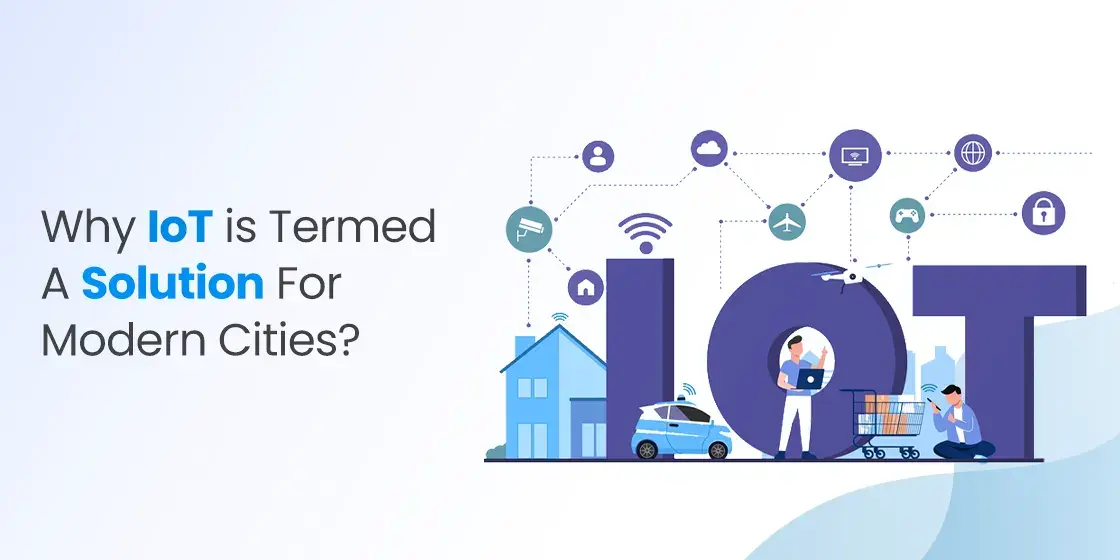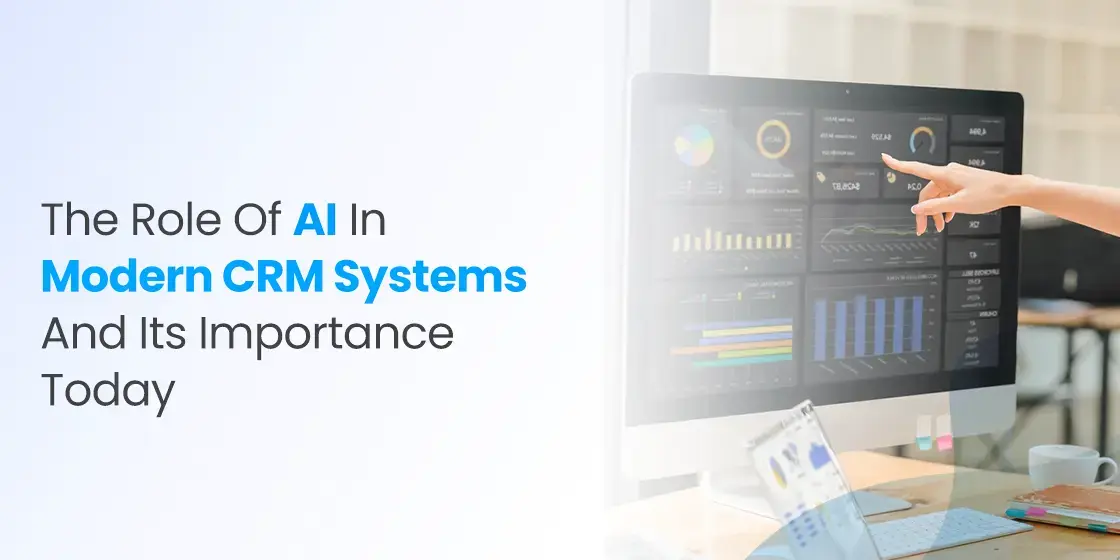Table of Content
Know How to Benefit Effectively from IoT for Smart Cities
The tech world is evolving quite fast, allowing everything to get a new reshaped face of modernization in the industry. Businesses are certainly taking more advantage of this evolution, as they are regularly incorporating new stuff into their processes. However, some technologies are also targeting the general sector, so that the lives of normal people can also get better. The name of IoT comes first into that list, as its application in building smart cities is a perfect example for that. Many countries have started to use IoT for smart cities, as they know that it is the way forward to build modern and secure cities effectively.
The implementation of IoT requires good technical knowledge. It is quite different from other technologies, which is why you need to understand its core basics properly. This is also a big reason why you will not find much resources of IoT currently in the market. Though the scope of the technology is very big, but its resources are currently limited in the industry. It can be said that IoT is still progressing, and people are steadily adopting it after understanding its application step by step.
There are different venues where IoT can be implemented to automate and modernize things. The biggest prospect till now is termed to be the development of smart cities through IoT. It is something that is unprecedented, because IoT brings tons of ways to use technology in the management of urban cities. From security to traffic management, IoT can help city administration to do everything effectively, provided a fully functional system is put in place by taking custom software development services.
In this blog, we will discuss the same topic as how IoT for smart cities can be properly leveraged. It will highlight some areas where administrators can use IoT to bring advancement in city management. Let’s start with some basics below understanding why modern cities need a technologized management plan.
Importance of Technology for Modern Cities
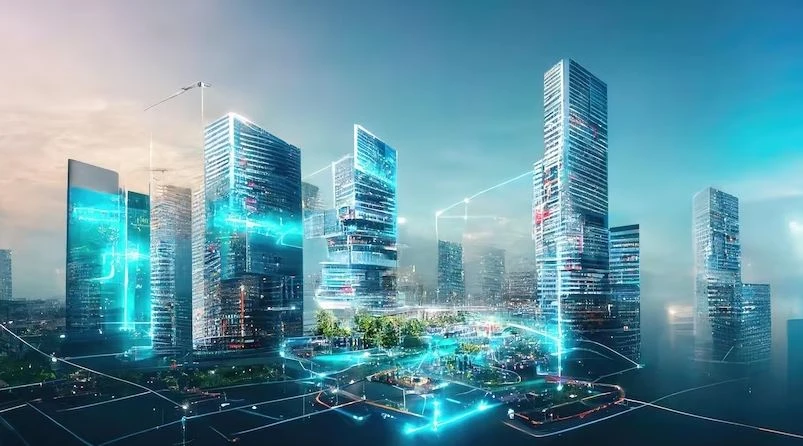
The functional management of cities often looks to be a difficult task for administrators. The reason is that there are various areas where an administrator need to look simultaneously. For big cities like New York, Sydney and more, this is not an easy job. It does not only require a big set of human resources, but also a plan that can oversee everything swiftly. These plans cannot function unless you have a proper tech system in place, as that is the basic need of its functionality.
This is the major reason why technology is considered important for modern cities. Gone are the days when you can just perform managerial duties conventionally. Now, there are bigger challenges lying out there that needs to be addressed smartly. If you will not do that, things could become difficult in management. Some people think that by just using bigger resources and budget, city management plans can be easily executed. This is certainly a wrong approach because current problems like traffic, security and more definitely needs a smart solution.
It is therefore recommended to put in place an advanced tech system that can manage everything swiftly. A system that is automated and capable of executing different tasks quickly on its own. That is where the name of Internet of Things (IoT) comes first into the list. Its connection with the cloud and ability to perform different tasks intelligently makes it a top choice for city management. Below, we will explore more about it, so make sure to read every point that defines the implementation of IoT in building smart urban cities.
What is a Smart City?
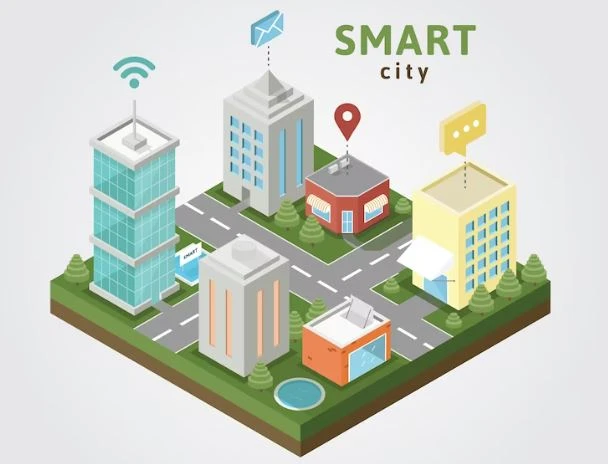
A smart city works and function with the help of a high-tech system. This is a new concept that helps to make a city powered up with advanced technology. Here, cloud and internet is considered at the heart of everything. It allows different managerial sources of the city to connect together to different take decisions smartly. It reduces the hassle of managing things manually, as the automated tech system connected with cloud does everything swiftly.
The infrastructure of a smart city is built using different core components. It includes IoT devices such as sensors, lights, and meters in the initial plan. This basic infrastructure can be made more advanced by using additional components, but that depends on the functional requirements of every city. For instance, a small city will not require advanced set of IoT infrastructure, however, a bigger city will need some additional resources.
With the help of an IoT-based infrastructure, smart cities help to improve the lifestyle of citizens. It allows them to avail essentials like Wi-Fi access everywhere in the city. Furthermore, IoT connects everything together, meaning that traffic management, security planning and more other operations can be done from just a single platform.
Key Applications of IoT for Smart Cities
Smart cities are built on the bases of IoT. It helps to formulate everything in the development of a smart city. From transportation to utility management, IoT powers up everything in a smart city. These things can’t be done by using conventional methods. It definitely requires a base of technology that can connect different things together. This is the main purpose of IoT which is what makes it special among other technologies.
If you do not know what type of features are presented in a smart city built on the bases of IoT, take a look at the points given below. It has listed some key areas where IoT can help to make the management of city a bit smarter.
Traffic Management
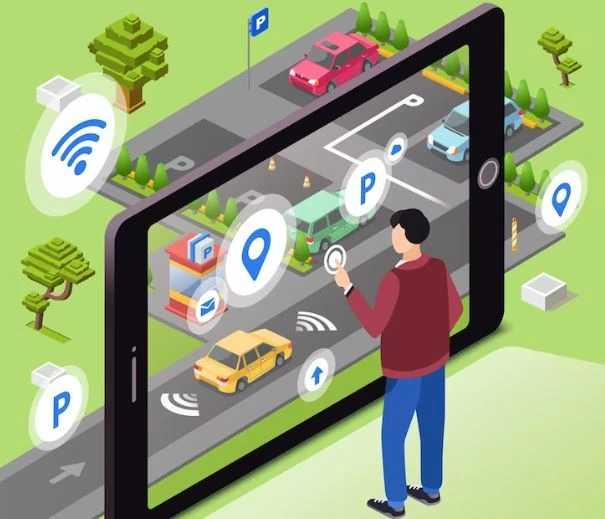
When it comes to traffic management, we all know how difficult it gets for city administrators. It is something that needs continuous attention, as well as monitoring from the top authorities. Without effective guidance, traffic jams could become a routine thing in many big cities. In fact, in many parts of the world, it is a severe problem that irritates many people every day. It eats up travelling time of many people, especially in those cities where the infrastructure of public transport is quite problematic.
To resolve this issue, an automated system is required that can oversee all the traffic problems in the city. This is where the application of IoT comes into play, allowing administrations to manage the traffic by using automated calls. This system is basically built on the bases of IoT sensors installed on traffic lights, roadways and other places. Using big data consulting mechanism, it helps to collect different patterns of data to recognize how the traffic moves usually on the roads. Based on this data, the IoT systems build plans to direct traffic on different routes, so that road jams can be reduced as much as possible.
Remote Monitoring
We all know that rising street crime is a big problem in many big cities of the world. It is something that can’t be managed by simple policing. The immoral thieves and criminals always finds a way to dodge the police using different types of types of tactics. To control it wisely, city administrators need to do remote monitoring using advanced IoT systems. They need to see the status of every alley, highway and other places that are difficult to guard every time. With the help of IoT, this can be done, enabling police authorities to take different actions decisively.
Besides monitoring for security, IoT can also be helpful for citizens in routine utility management. They can use the smartphone apps connected with IoT servers to check the status of different things like electricity and gas consumption. There are several IoT based apps available in the market that allows residents to connect their meters with the main servers to track daily consumption. This way, everyone can see how many resources are being used and how it can be controlled effectively. Furthermore, any complaints could also be registered directly through these apps, giving no management hassle to the people.
Waste Management
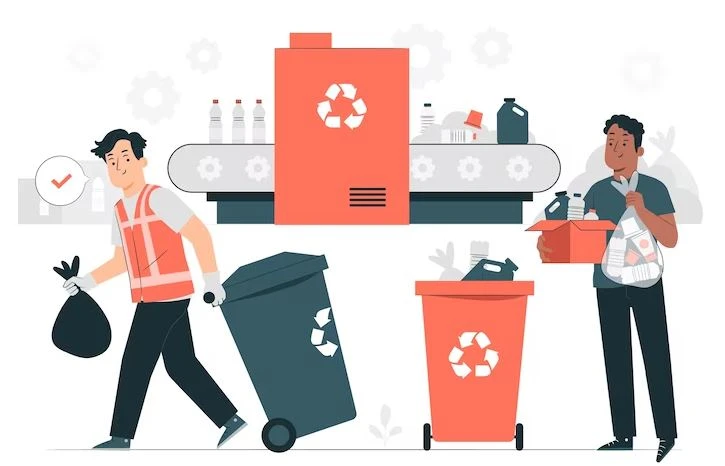
The Internet of Things (IoT) is transforming the way we live and work, and waste management is no exception. IoT sensors can be placed in garbage boxes to monitor the fill level and optimize waste collection routes. This simple solution can save waste management operators a significant amount of money. In one study, a city in the United States saved over $1 million per year by using IoT to optimize its waste collection routes.
In addition to reducing costs, IoT can also help to improve the environmental impact of waste management. By optimizing routes, trucks can travel fewer miles, which reduces emissions. Additionally, IoT can help to track the amount of waste that is being generated, which can help to inform decisions about recycling and composting. It is indeed a powerful tool that can be used to improve waste management. By tracking waste levels and optimizing routes, IoT for smart cities can help to reduce costs, improve efficiency, and protect the environment in a much better way that conventional processes can’t offer.
Smart Parking
Smart parking is another area where IoT can bring tons of advancements. Just like traffic problem, many cities also face parking issues. The increasing number of vehicles in every city is a big reason for that, but that can’t be used as an excuse by authorities. Instead, they need to come up with a plan that can resolve this problem and give ease to the people in parking. They can precisely take good benefits from IoT for smart cities, as it provides great assistance in guiding people where the vacant spaces are available for parking.
This simple solution can save drivers a significant amount of time. As per the survery, drivers in a city in the United States saved an average of 15 minutes per day by using IoT-powered parking guidance. In addition to reducing search time, IoT can also help to reduce congestion. By guiding drivers to available parking spots, IoT can help to reduce the number of cars circling around parking lots, which can lead to less traffic and pollution.
Public Security
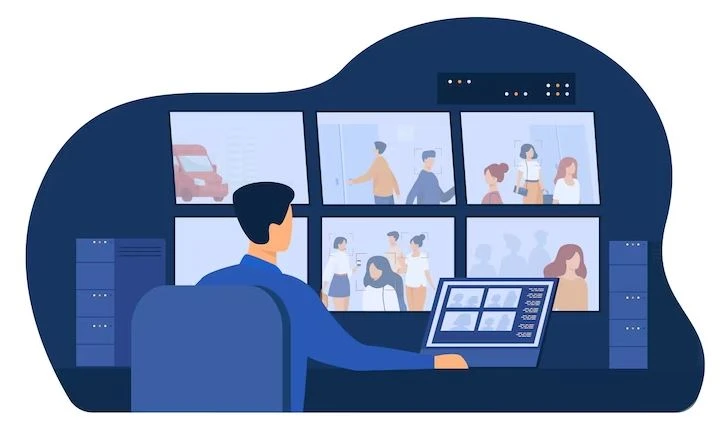
Security and surveillance is a big responsibility of authorities in big cities. It is something that needs extra work, because rising criminal rate cannot be reduced easily by using conventional policing practices. Instead, authorities need to install smart IoT-based surveillance systems to keep a continuous watch on every part of the city. This is a highly advanced mechanism that gives a complete view of the city to the authorities. They can divide their task force based on this surveillance system, so that every team can focus properly on particular areas of the city.
This simple solution can help to prevent crime and keep our communities safe. In one study, a city in the United States that installed IoT-enabled cameras and sensors saw a decrease in crime of 20%. In addition to preventing crime, IoT can also help to improve public safety by providing real-time data on traffic patterns and crowd density. This information can be used to optimize emergency response times and to prevent accidents.
Frequently Asked Questions
| What is Internet of Things (IoT)? The Internet of Things (IoT) is a system of interrelated computing devices, mechanical and digital machines that are provided with unique identifiers and the ability to transfer data over a network without requiring human to human or computer interaction. |
| Which type of IoT devices are used for smart cities? Based on the model of IoT, smart meters are oftenly installed at different places in the city to collect relevant data. It lets the administration know what type of action should be taken on particular data, provided it is correct. |
| What type of technologies are needed for smart cities? To create smart cities, you need to build different systems based on the model of IoT. These systems should be connected with each other, as that helps to exchange information continuously. Some of the popular systems needed for smart cities include: 1. Advanced 5G network 2. Energy monitoring and testing system 3. Smart energy grids 4. High-tech security systems |
| How IoT can be used for smart parking? With the help of IoT-based systems, you can track where the vacant places are available for parking. This information can be shared live on the applications that will let the people know about the available places. |
| How IoT can be used for waste management? The Internet of Things (IoT) can be used for waste management in a variety of ways. Smart sensors can be attached to waste trucks to track their location and the amount of waste they collect. This information can be used to improve efficiency and to ensure that waste is disposed of properly. |
Final Words
That brings us to the end of this blog in which we have discussed various implementations of IoT for smart cities. It is indeed a stunning technology that is bringing evolution in the tech industry. It is not just beneficial for businesses, but for the general public as well. The development of smart cities is a perfect example how the benefits of IoT can be swiftly leveraged. It allows city administrations to monitor everything with ease, precisely with a data that can help them to take informed decisions.
In this blog, we have discussed some of the popular implementation of IoT for smart cities. It is a good read for the beginners who do not know how big this technology is and why it should be used to manage different operations in any city. Meanwhile, if you are looking for a professional company that can help you to build powerful software systems, get in touch with us today. We will help you to create custom applications using latest software development tools and technologies.
Empower your digital initiatives with BariTechSol, a premier custom software development company. Our skilled team tailors cutting-edge solutions to your unique needs. Elevate your tech experience and stay ahead in the digital realm. Partner with BaritechSol and code the success of your next big idea.
